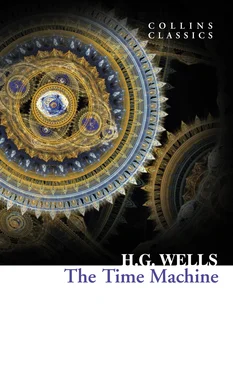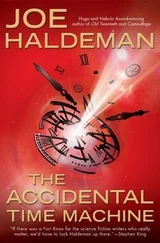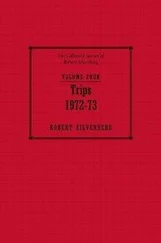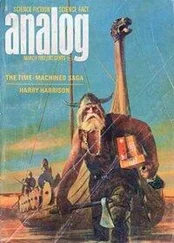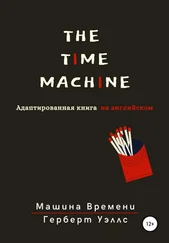Alongside Huxley’s influence, Wells developed an interest in divisive topics as a member of the student debating society. And, without doubt, he was living in interesting times. By the 1880s, the notorious rigidity of Victorian society was giving way to contentious questions about evolution, religion and equality, and Wells soon became an outspoken critic of the social status quo. He felt society could be better and stronger – essentially, more evolved. He took an early interest in the newly established Fabian Society, a socialist organisation that was subsequently instrumental in founding the British Labour Party, and which included among its members satirical dramatist G. B. Shaw and suffragette Emmeline Pankhurst.
In the early years of the twentieth century, Wells fell out very publicly with the Fabians, accusing them of being an ineffectual ‘drawing-room society’ with ‘scattered members’. He wanted them to take a more gung-ho attitude to social reform, and thereby to rally new members to the cause. They in turn were embarrassed by his unconventional private life: he was twice-married and promiscuous, and had both legitimate and illegitimate children. Wells ultimately left the group in frustration, but in the meantime his mind had been awoken to the possibility that life on earth could quite easily become either immeasurably better or immeasurably worse, visions he elaborated upon in his fictional output during these early years of his political engagement.
H. G. Wells’ first book was his 1893 Textbook of Biology , which drew on his time as a science teacher, but just two years later he produced a debut novel that made him a household name and popularised a whole new genre of fiction. The Time Machine (1895) is the story of a scientist who travels to the very distant future, where he discovers that the division between rich and poor that was entrenched in nineteenth-century society has led to mankind splitting into two distinct species. The novel was a thinly veiled warning based on Wells’ political views, but its remarkable claim to fame is that it popularised the concept of ‘time travel’ by ‘time machine’: both terms coined by Wells, and now considered staples of science fiction.
Nineteenth-century literature, propelled in part by the swift technological advances of the Industrial Revolution, had seen a gradual shift from Gothic horror – with its ghost stories and vampires – to novels that dealt with man-made futuristic inventions. Mary Shelley’s Frankenstein (1818) is now considered an early work of science fiction, but the genre came into its own in 1864 with the publication of Jules Verne’s Journey to the Centre of the Earth . Verne dominated the genre for the next two decades, but the 1890s belong firmly to H. G. Wells. Following his success with The Time Machine , Wells published, in quick succession, bestsellers including The Island of Doctor Moreau (1896), The Invisible Man (1897) and The War of the Worlds (1898). Both he and Jules Verne have subsequently been declared ‘The Father of Science Fiction’, even if, in their day, the genre was more commonly known as scientific romance.
Wells’ novels of the 1890s pushed the boundaries of scientific imagination, making fantastical notions such as genetic engineering, invisibility and extraterrestrial life forms seem alarmingly real. The War of the Worlds boasts some of the earliest fictional ‘Martians’ and describes the as-yet-uninvented laser, cornerstones too of modern science fiction. But beneath the surface, these novels continued to present nightmarish visions of a future defined by selfishness, inequality and conflict: qualities Wells hoped humankind might yet do away with.
Wells’ debut novel, published in 1895, is among his more overtly political, offering a chilling vision of a future in which class-obsessed humankind has devolved into two grotesquely distinct species. This is perhaps little wonder: the story began life almost a decade earlier, around the time of Wells’ enthusiastic adoption of socialist ideas. In 1888 he had published a short story in The Science School Journal entitled ‘The Chronic Argonauts’ – this was before he hit on the term ‘Time Traveller’ – in which a professor devises a curious machine that allows him to move back and forth in time.
There is some debate as to whether Wells invented the notion of time travel by man-made contraption, but he was certainly among the very first to conceive of it. Before the 1880s, time travel tended to occur to protagonists in dreams or via some sort of supernatural visitation: Scrooge’s three ghosts in Dickens’ A Christmas Carol (1843), for instance.
When Wells returned to his work in progress, he expanded upon the professor’s findings in the future. Transported to the year 802,701, the newly named Time Traveller encounters the Eloi, who at first strike him as a simple, peaceful civilisation; one for whom intelligence is unimportant and work is non-existent. It is only when his time machine is stolen that the Time Traveller discovers the backbone of Eloi society: the subterranean Morlocks, who shun daylight and toil underground in order to keep the Eloi in the lazy comfort to which they have become accustomed. His initial appraisal that the ‘upper-class’ Eloi are being sustained by the hideous ‘working-class’ Morlocks is called into question, however, when he learns that the helpless Eloi are the Morlocks’ main source of food …
Ultimately it seems irrelevant which of the two species has the upper hand: The Time Machine is a damning premonition of a future in which the Victorian class system has run rampant at the expense of common humanity.
For all the dystopian horror of his most famous novels, Wells was, in his predictions for mankind’s future, an optimist – initially, at least. He felt at heart that humanity was on the brink of something wonderful. His 1901 work Anticipations of the Reaction of Mechanical and Scientific Progress upon Human Life and Thought set out a vision of the future in which warfare was obsolete, nations having synthesised into large peaceful blocs that treated one another with ‘intelligent sympathy’. He predicted that, by the end of the twentieth century, this social revolution would have forever assured ‘the final peace of the world’.
The First World War shook his belief, although Wells remained convinced that the reality of all-out warfare might yet sober mankind into long-term peace. In his Outline of History (1920), he defined human history as ‘more and more a race between education and catastrophe’, but predicted that progress would prevail, be it ‘clumsily or smoothly’.
By the outbreak of the Second World War – which he had predicted with eerie accuracy in his 1933 novel The Shape of Things to Come – Wells was less optimistic. It is apt that his final work, composed in 1945 and foreseeing the collapse and destruction of humanity, was entitled Mind at the End of Its Tether . He felt he had given ample warnings that had gone unheeded. Indeed, reflecting in 1941 on predictions he had made that had come horribly true, Wells suggested that his epitaph should simply read: ‘I told you so. You damned fools.’ When the end came, in 1946, his ashes were scattered at sea.
The Time Traveller (for so it will be convenient to speak of him) was expounding a recondite matter to us. His grey eyes shone and twinkled, and his usually pale face was flushed and animated. The fire burned brightly, and the soft radiance of the incandescent lights in the lilies of silver caught the bubbles that flashed and passed in our glasses. Our chairs, being his patents, embraced and caressed us rather than submitted to be sat upon, and there was that luxurious after-dinner atmosphere when thought roams gracefully free of the trammels of precision. And he put it to us in this way—marking the points with a lean forefinger—as we sat and lazily admired his earnestness over this new paradox (as we thought it) and his fecundity.
Читать дальше
